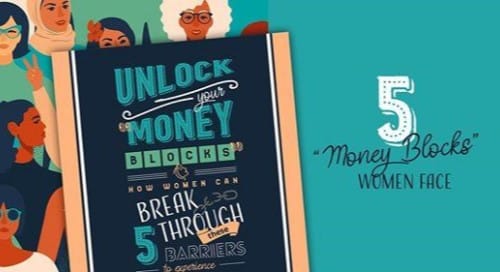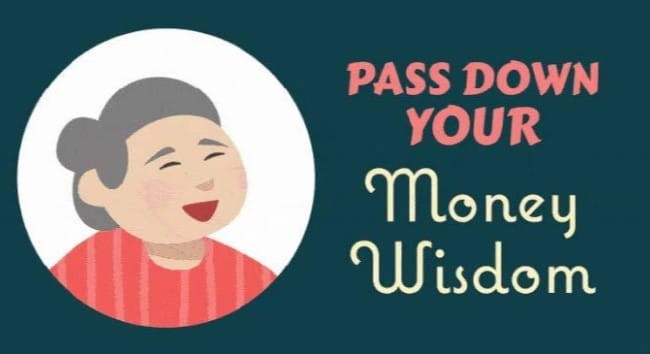
Some market strategists are calling the end of the bear market already … do you think they’re right?
(Keep reading to see what could be behind the surge, as well as a breakdown of how the $2 trillion CARES Act affects your wallet.)
But first of all, how are you doing? Are you and your families safe and well?
Our firm has worked virtually with each other and clients for years, so the transition to working from home has been seamless for us. Also, I’ve found that I’m not terrible at home schooling my daughter, but I have to admit I’m glad she’s only in the fourth grade and the hardest topic we’ve had to cover is acute and obtuse angles! I’ve heard it’s very likely that she’ll be home the rest of the school year, so we’re going to have to get into a set weekday routine if we are going to get through all her daily assignments for the next two months.
With markets whipping between rallies and retreats, it’s natural to ask:
Is it time to buy?
Is it time to sell?
Are we near the bottom?
Is the bear market finally over?
Despite the recent market surge, which propelled the Dow 21% higher in just 3 days (technically ending its bear market correction), it’s likely too soon to get overly optimistic.1
What gives? How can markets be rallying when the crisis hasn’t even peaked yet? When markets have fallen so much and “priced in” so much bad news, it’s common to see short-term surges on good news like the relief bill. However, these “head-fake” rallies can be unsustainable when there’s so much uncertainty.
Bottom line: No one is good enough to call the exact bottom of a market. What’s important is looking through the bear market to the other side and picking up opportunities along the way.
Whether the bear market is over or not, we’ve been here before and know what to do.
How worried should I be about a recession?
Cautious, but not panicked. When a $21 trillion economy comes to a screeching halt, there’s going to be an economic contraction. Multiple timely indicators show that we are already experiencing a sharp downturn.2
However, the $2 trillion fiscal rescue act and the Federal Reserve’s new asset-buying program are a double-barreled bazooka aimed at the effects of a serious recession.
We’re monitoring the data rolling in and will know more about how the economy is reacting to the unprecedented aid in the coming weeks and months.
What’s inside the $2 trillion CARES Act? What’s in it for me?
The Coronavirus Aid, Relief, and Economic Security (CARES) Act is designed to provide relief for individuals and businesses who have been hurt by the outbreak. I won’t try to include all 800+ pages in this email, but here are a few key provisions that you should know about:3
One-time cash payment. Taxpayers are eligible for a one-time direct deposit of up to $1,200 per adult ($2,400 per couple) plus $500 per child under age 16. Amounts are reduced for those who make more than $75,000 ($150,000 if married). If you have filed your 2019 taxes already, the IRS will use that income to calculate your payment; if not, they’ll use your 2018 tax filing.
Better unemployment benefits. The Act will extend and expand unemployment insurance through Dec. 31. Eligible workers (now including self-employed, independent contractors, and gig economy workers) will receive an extra $600/week for four months, on top of what they receive from state unemployment benefits.
Early withdrawal penalty waiver. The Act waives the standard 10% early withdrawal penalty for eligible coronavirus-related distributions from retirement accounts (retroactive to Jan. 1). You’ll still pay income taxes on withdrawals, but you can spread them over a three-year period or use that time to roll the distribution back over.
2020 RMDs suspended. You won’t have to take a Required Minimum Distribution from your IRA or 401(k) this year, leaving you in control of how much you withdraw. If you already took your RMD for 2020, you have several choices: keep it and pay taxes on it, return it to your IRA as an indirect rollover, or convert the amount into a Roth IRA (Roth conversions are permanent).
“Client” means someone who is under my protection, and that extends to your loved ones.
Financial advice is a public service in these times, and I’m here to help. Please forward this email to any friends and loved ones who have been affected by the coronavirus and who might need some help. If you have questions about how the slew of recent changes could affect you, please call the office at 800-840-5946 and we’ll find a time to talk.
2https://finance.yahoo.com/news/ihs-markit-march-2020-flash-us-purchasing-managers-index-134651548.html
https://www.cnn.com/2020/03/26/economy/unemployment-benefits-coronavirus/index.html
3https://www.fidelity.com/learning-center/personal-finance/coronavirus-stimulus-package
https://www.washingtonpost.com/business/2020/03/30/coronavirus-stimulus-cares-act/
https://www.cnbc.com/2020/03/26/coronavirus-relief-act-expanded-unemployment-payment-and-eligibility.html
Chart source: https://www.npr.org/2020/03/26/821457551/whats-inside-the-senate-s-2-trillion-coronavirus-aid-package
Risk Disclosure: Investing involves risk including the potential loss of principal. No investment strategy can guarantee a profit or protect against loss in periods of declining values. Past performance does not guarantee future results.
This material is for information purposes only and is not intended as an offer or solicitation with respect to the purchase or sale of any security. The content is developed from sources believed to be providing accurate information; no warranty, expressed or implied, is made regarding accuracy, adequacy, completeness, legality, reliability or usefulness of any information. Consult your financial professional before making any investment decision. For illustrative use only.
Opinions expressed are subject to change without notice and are not intended as investment advice or to predict future performance.












